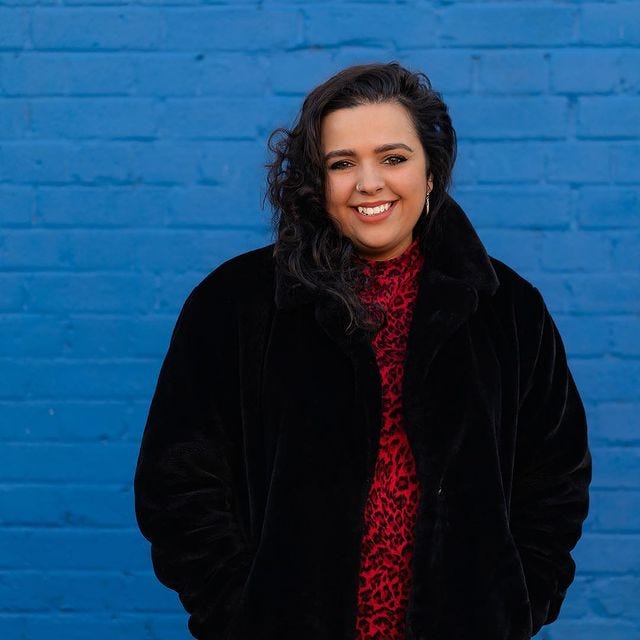Solon Attoh: "Mixed people are forced to adapt"
How this Creative Manager uses education to dismantle stereotypes

Hi, welcome back to Mixed Messages! This week, I speak to Solon Attoh, Creative Manager at mixedracefaces, a platform that captures portraits and stories of people with mixed heritage. Solon is of Dutch and Ghanaian heritage, and focuses on education to break down the stereotypes of what it means to be mixed. Having shared my story on mixedracefaces last year, I was excited to turn the tables and hear Solon’s story.
How would you define your ethnicity?
I’d say I’m mixed Ghanaian and Dutch. I wouldn’t say half, because I think mixed is more of a compliment to the ethnicities that make you.
When I was younger, I was probably often profiled to be Black, which is an easy way for someone to put me in a box. That’s one of the negative sides to being mixed.
How do you react to the question “where are you from?” I find it quite stressful, I’d rather people were specific about what they’re asking me.
I find it interesting when people ask me, so I can help to educate them. It all depends on the intention behind the question; you can see who’s trying to be sensitive. I try to assume that everyone’s coming from a good place, but it can trigger that feeling of trauma based on your past experiences.
How have you held on to your cultural heritage?
I’ve grown up with both African and Dutch food, I’ve grown up with a culture that respects aunties and uncles… there’s certain things I’ve been exposed to that I’ve kept along the way. I’m in a third culture at the moment, where I have a lot of British ways, so it’s up to me to retain my original culture. I think it helps to stay close to older generations in your family to get that exposure to cultural customs.
I feel more connected to my mum’s Dutch culture, which may be because I lived with her after my parents split up. It was easier to visit Holland than it was to go to Ghana, to which I only went once and I lived there for a year. Dutch culture was more within my reach.
Was there a point growing up where you realised you were mixed?
I went to live in Ghana for a year when I was nine and I was told that I wasn’t Ghanaian at school. I was referred to as a white person. That’s when I found out I was a bit different. I was never ashamed of it, but I felt like I needed to go and do some research on my Dutch side to figure that part out.
How and why did mixedracefaces start?
It started in 2018 in Peckham. We were having lots of conversations with different people with so many commonalities in their stories of how they felt about their identity. We [Solon works with his wife, Rachael, and mother, Tenee] decided we needed to document and share these experiences to give people a resource to tune into.
The inspiration for the platform is also in honour of Rienkje Zoet, my grandmother. Rienkje was a Dutch woman who married my grandfather, Fred Attoh, a Ghanaian photographer, in the 1950s. She lived in Ghana for 25 years, and was a strong woman who broke down barriers to enter a different culture in a time when inter-racialism wasn’t widely accepted.
We decided to create a mainly digital platform so that it would be accessible to a lot of people. Our plan is for mixedracefaces to be a global platform that’s embedded into as many organisations and communities as possible as an educational resource. We want to ensure we keep offering stories and context to people’s experiences, as well as visuals.
How are you dismantling the stereotype of what it means to be mixed-race?
Changing the stereotype will take time, but we’re trying to redefine the term. Back in the day, mixed-race people was mainly seen as mixed Black and white, but at mixedracefaces we’re delving into other areas of being mixed.
We’re also exploring people who have mixed heritage from a culture perspective to understand how they see themselves. We’re trying to move away from the view that mixed people have a certain ‘look’ - we shouldn’t presume someone’s heritage from looking at them. Let’s have a conversation first and understand their history, which is something I feel our platform offers.
If you could describe being mixed in one word, what would it be?
Chameleon. It’s not just mixed people who are able to adapt to different situations, but I think we’re forced to.
Next week, I’ll be talking to actor and TEDx speaker Jassa Ahluwalia. Subscribe to get Mixed Messages in your inbox next Monday!
Mixed Messages is a weekly exploration of the mixed-race experience, from me, Isabella Silvers. My mom is Punjabi Indian (by way of East Africa) and my dad is White British, but finding my place between these two cultures hasn’t always been easy. That’s why I started Mixed Messages, where each week I’ll speak to a prominent mixed voice to delve into what it really feels like to be mixed.





